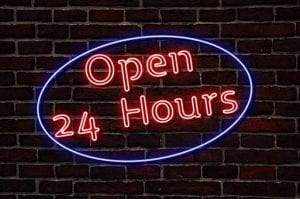In his article, Colvin (2000) discusses the shift in thinking about the role of people in the workforce. He discusses the theory of Taylor’s Scientific Management developed by Frederick Winslow Taylor and its contribution to work efficacy in the 20th century. He goes on to explain how this type of management system is less relevant for the 21st century, as we move from a manual labour force to one of information and knowledge.
So how does Colvin’s article relate to school libraries today? The 21st century has brought with it the ‘information age’ which sees information and knowledge as fundamental and desired skills within the workforce. Colvin (2000) calls this a ‘knowledge based economy’, which is strongly supported by the use of information. As Colvin (2000) aptly points out ‘the whole world is changing’. Those working within the information sector are well-placed to help people develop the necessary skills to be able to actively work within and contribute to this economy. School librarians and information specialists play a crucial role in ensuring that the students of today, who will become the workforce of tomorrow, are able to locate, access and use this information to engage in the participatory work culture that is both required and valued from 21st century managers.
References
Colvin, G. (2000). Managing in the info era. Fortune, 141(5). Retrieved from http://archive.fortune.com/magazines/fortune/fortune_archive/2000/03/06/275231/index.htm?iid=sr-link1.
The Worl d Wide Web, paired with devices which allow us to easily locate information, mean that we can find the answer to almost anything we want to know within seconds. When I was younger, I thought this was exciting, and in some ways, I still do. However, now that I am juggling life as an employee, a student, and a parent, I’m somewhat less impressed with the ability to be ‘connected’ all the time. In many ways, it actually feels like a burden.
d Wide Web, paired with devices which allow us to easily locate information, mean that we can find the answer to almost anything we want to know within seconds. When I was younger, I thought this was exciting, and in some ways, I still do. However, now that I am juggling life as an employee, a student, and a parent, I’m somewhat less impressed with the ability to be ‘connected’ all the time. In many ways, it actually feels like a burden.
When asked to consider some of the ramifications of having access to information at all times and to think about how this affects my ability as a student, I was quickly able to identify both positive and negative effects.
Advantages
- Immediate access – I really appreciate that if I come across a term that I am unfamiliar with in my studies, a quick internet search will usually enable me to locate several definitions of the term. If I need to do further reading, I am often able to locate more detailed information through academic journal articles online. This leads me to my next point.
- Convenient – I need not ever leave the comfort of my study in order to locate the information that I need. When I studied my first degree back in the early 2000’s, I didn’t have internet access in my home and I certainly didn’t have a smart phone. I walked to the university library and in most cases, looked for a physical copy of the book or journal that I needed. If I didn’t have the information I needed before the library closed, I’d have to wait until the next time it was open to find what I needed. Talk about inconvenient!
- Current – I enjoy how easily I am able to find both current and relevant academic journals and books online when studying.
Disadvantages
- Switching off – I mentioned previously that I enjoyed being able to access information around the clock rather than having to wait for the library to open. Unfortunately, this also means that because I know I can access this at any time, I find it difficult to ‘switch off’ during times when I should be focusing on other things. I think this is true for many people in general, and a definite negative affect of being constantly ‘connected’.
- Distraction – It’s a wonderful thing to have an inquiring mind and be able to search for, and locate information. Unfortunately, this also means that one must be very good at focusing on one task rather than becoming distracted and going on a different tangent…which I am guilty of on more than one occasion.
Ultimately, I enjoy having such ready access to information of all types, presented in various formats and delivery modes. The key for me is learning how to strike a balance between information searching/consumption and simply being without the constant need to ‘find the answer’.

